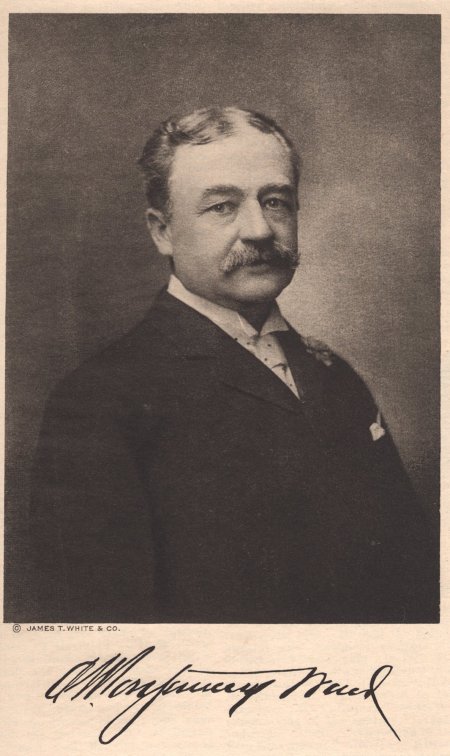Aaron Montgomery Ward
Today, meet Montgomery Ward. The University of Houston's College of Engineering presents this series about the machines that make our civilization run, and the people whose ingenuity created them.
Aaron Montgomery Ward, unlike Sears and Roebuck, was only one person. He was born in New Jersey in 1844 and moved to Michigan as a boy. He went to school up to the age of fourteen, then apprenticed to learn barrel-stave-making. He also worked as a laborer and as a shoemaker. When he finally found work as a store clerk, he became the store's manager only three years later.
In 1872, he and a partner began selling merchandise by mail order. The first catalog of the new Montgomery Ward & Company was a one-page list of 162 items. Three years later the company coined the phrase, "Satisfaction or your money back." Eleven years later the catalog had grown to 240 pages with ten thousand items.
In 1886, Richard Sears and Alvah Roebuck created a competing mail-order company, but it wouldn't be a serious challenger until the twentieth century. Ward's made mail order into a primary shopping source for our spread-out rural country. It didn't open a retail store until 1926, thirteen years after Mr. Ward had died.
After WW-II, in an urbanized America, the company began its long slow trek toward extinction. Ward's merged with other companies, and, in 1985, it discontinued its catalog. As a pure retail outlet, it faded and finally went bankrupt in December of 2000.
But I hold in my hand an 1895 Montgomery Ward catalog, and it is a glorious thing -- over six hundred pages -- tens of thousands of items, each illustrated by a woodcut. Six kinds of bicycle-bells range in price from thirty cents to a dollar-ten. A cello costs twelve dollars, and a piano, two hundred. A buggy harness goes for four dollars, and a buggy for sixty. (Ward was, by then, manufacturing his own buggies.)
We have to be powerfully struck by the infusion of amenities, functional and frivolous, into our mostly rural America. Treadle sewing machines, iron beds and bathtubs, thousands of book titles, chairs and commodes. We find millinery, watches, and pages of jewelry. A solid-gold eighteen-karat wedding band costs five dollars.
Last year's catalog may've been sent off to serve the privy out in back. But each new cheap-paper emporium was an engine of transformation in my parents' world, and it was still working its magic when I was young. The big department stores would come later, and, as they did, an American epoch ended. Ward's tried to resurrect its catalog in 1991. But, of course, it was too late.
So we sift this magical book: Madam Foy's improved corset, Windsor wood and coal stoves, a Waltham railway watch or a Seth Thomas clock, Colt six-shooters and Blanchard butter molds, a toy iron cannon for twenty cents, or a Noah's ark filled with animals.
Monkey Wards, as we all called it, was never meant to be a store. It was a cornucopia of dreams reaching into remote corners of a raw land. Ward's picked up where itinerant peddlers had left off. And a primal piece of America ended with those old catalogs.
I'm John Lienhard, at the University of Houston, where we're interested in the way inventive minds work.
(Theme music)
Montgomery Ward & Co.: Catalogue and Buyers' Guide, No. 57, Spring and Summer, 1895. An unabridged reprint of the original ed. (ed. Boris Emmet) New York: Dover Publications, Inc., 1969.
See also the biography of Aaron Montgomery Ward in The National Cyclopaedia of American Biography.

Aaron Montgomery Ward: 1844-1913
(from The National Cyclopaedia of American Biography)